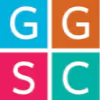Morning pages are a simple yet profound practice introduced by Julia Cameron in "The Artist's Way." By writing three pages of stream-of-consciousness thoughts each morning, you'll clear mental clutter, bypass your inner critic, and tap into your creative potential. This guide will help you establish this transformative daily ritual.
Techniques
: Journal Prompts and Guides
Explore
17
journal prompts and guides about
Techniques
and
master effective skills and improve problem-solving abilities
.
Techniques-focused journaling helps you identify which approaches actually move the needle, adapt strategies to your circumstances, and build small habits that stick. Writing turns trial and error into clear notes you can compare over time, reveals what feels sustainable, and makes it easier to experiment with new methods. Use these prompts as a practical lab: pick one prompt, set a 10–15 minute timer, and write honestly about what worked, what didn’t, and why. Return periodically to test adjustments and track progress—treat entries as useful data for refining your everyday tools.

Trauma & Healing
Mindfulness
Parenting
Intentions & Goals
Nourishing
Creativity
Spiritual
Work & Finance
Health & Wellness
Personal Growth
Relationships
Anxiety & Depression
Play
How To Use
Techniques
Journal Prompts
Start by selecting a journaling guide that focuses on a specific technique you want to explore or improve. Use the prompts to break down the technique into manageable parts, reflecting on each step or element in detail. Write freely about your experiences applying the technique, noting what worked well and where challenges arose. Experiment with different prompts to uncover new perspectives or variations of the technique. Revisit your entries regularly to track progress and identify patterns or insights. Allow yourself to be honest and curious, using the prompts as a tool to deepen your understanding and refine your approach. Over time, this focused reflection can help transform abstract concepts into practical skills.
Read more tips on how to start and keep a journaling practice that can guide your wellness and personal growth.
Benefits of
Techniques
Journaling
Journaling focused on techniques helps convert tacit routines into explicit strategies by forcing you to note what you did, why it worked or didn’t, and what you’ll change next—making practice more deliberate and measurable. Research on reflective practice, metacognition, and self‑explanation indicates that structured reflection improves error detection, planning, and transfer of learning, while writing about experiences also acts as retrieval practice to strengthen memory and skill retention. For technical and motor skills, tracking specific cues, outcomes, and adjustments in a journal turns feedback into actionable steps, concentrates practice on high‑impact weaknesses, and accelerates improvement.
Learn about the science-backed benefits of journaling along with primary sources.
Featured Guides
Featured Voices
Journal Prompts & Guides by Collection


Gain clarity and peace of mind, wherever you are.
Download Reflection to start journaling today.

Scan with phone.

























